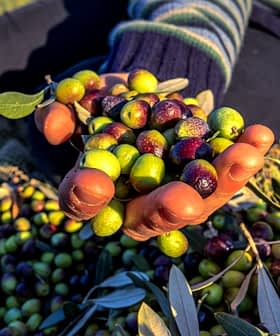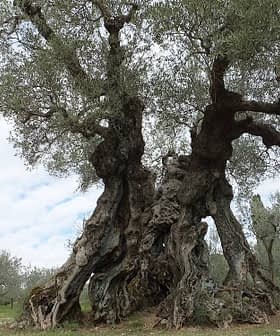Low Algerian Olive Oil Exports Blamed on 'Persistent Social Hurdles'
The region of Kabylia produces around nine million liters of olive oil annually but has struggled to export its oil because of deeply-rooted social hurdles.
 Kabylia, Algeria
Kabylia, AlgeriaThe region of Kabylia, located in the north of Algeria, produces around nine million liters (around 7,000 tons) of olive oil annually. Despite the abundance of that natural wealth the region has struggled to export its oil because of deeply-rooted social system that is hard to work with, even for local official authorities.
Olive oil trees grow naturally in Kabylia and demand minimal care. Normally, that would mean olive oil exportation opportunities are rife, yet Kabylia remains anchored in old-fashioned business practices preventing it from doing so.
In Kabylia, each family possesses its own olive parcel, which is usually no more than a few dozen olive trees. Each generation of growers transmits its parcel to the next one, and so on. An overwhelming majority of Kabylians are viscerally attached to their parcels and consider consuming one’s own olive oil to be better than selling it.
At best, they sell it through old-fashioned channels and acquaintances. That kind of rudimentary commercial transaction has severely impacted Kabylia’s capitalizing on lucrative foreign markets and governmental institutions have yet to come up with appropriate solutions.
Indeed, foreign partners have a hard time importing olive oil from Kabylia. Kamel Boudjadi, a journalist for Algerian newspaper L’Expression who has covered Kabylia’s olive oil market trends, has followed the path of a young man residing in France who wished to import olive oil from Kabylia.
(Editor’s note: The Algerian newspaper L’Expression stated that Algeria’s production of nine million liters was “roughly equivalent to the production of countries like Tunisia and Spain,” but it is, in fact, a tiny fraction of the output of either).
The man created a company and was looking to import Algerian olive oil in order to sell it on the French market which is an important segment of the large Algerian diaspora. That plan did not go as planned as he struggled to obtain the quantity he desired because of the way Kabylian growers do business.
Firstly, many local growers outright refused to sell him olive oil. Moreover, dealing with the ones who actually were willing was a difficult task as it required buying from hundreds of households to generate significant volume, which proved to be a business nightmare. The young man eventually quit the import business, discouraged.
Algerian authorities are aware of Kabylia’s limitations but have had a hard time organizing the local olive oil industry due to its immense fragmentation. Doing so would very likely turn out to be a colossal task as it would require making thousands of households adhere to the same production and business standards; government officials have tried doing so, but failed every time.
It has proven almost impossible for governmental regulating bodies to standardize the Kabylian olive oil industry from the harvest of olive trees to the exportation of their oil. In such conditions, yielding and selling olive oil that meets sanitary and gustatory standards to potential foreign business partners might remain an intricate challenge for Kabylia in the years to come.








